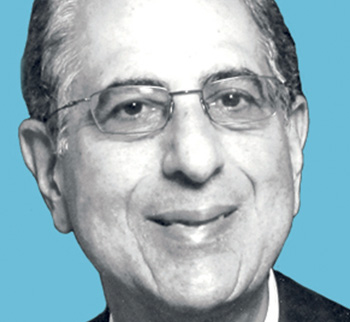Observers and participants alike were surprised, and in some cases dismayed, by the outcome of the Israeli election. Many were confident that, based on numerous polls, the Zionist Union would emerge victorious and form the government.
What many overlooked, however, was past experience showing that the electorate is very volatile and vote preferences can change to a significant degree in a very short period of time. Furthermore, the electoral system can amplify the effect of relatively small changes in voter intention on the Knesset seat count.
As it turned out, there were significant shifts during the last few days of the campaign, after the last polls had been published. These shifts resulted in the two leading lists gaining votes at the expense of smaller parties (Likud primarily from the right and Zionist Union primarily from the centre). Likud, in particular, benefited from Prime Minister Benjamin Netanyahu’s call to right of centre voters to vote Likud, even if they preferred another party on the ground, because such strategic voting would ensure that he rather than Labor’s Isaac Herzog would be asked to form the government.
From the beginning of the campaign, it was widely accepted that this election was about broad socio-economic issues rather than the usual security, territorial and Palestinian questions. But by election day, at least some voters reverted to the more customary position that Israel is under threat and requires firm leadership.
The duo of Herzog and Tzipi Livni was not perceived as being capable of providing that kind of leadership. Moreover, despite a willingness in many sectors of the population to compromise for the sake of peace, there is considerable skepticism about Palestinian intentions and therefore a reluctance to undertake risks for what might well prove to be a chimerical peace. Last year’s war with Hamas and current hostility from Ramallah do affect perceptions about peace prospects.
Another factor was the unprecedented involvement of foreign interests, both European and American, in the election campaign. Using the services of election professionals from abroad and raising money from foreign donors are not exactly innovations in Israeli electoral politics. But the scope and intensity of this year’s efforts, especially those perceived as being associated with the interests of the Obama administration, were so large that voters could hardly ignore them. If U.S. President Barack Obama, who is rather unpopular in Israel, was so strongly antagonistic toward Netanyahu, would that not induce some voters to vote Likud to spite the president?
One of the by-products of the election was the rather nasty crisis in U.S.-Israel relations, purportedly caused by some unwise and unfortunate comments by Netanyahu. However, the intensity of the animosity emanating from the White House and certain media sources makes one wonder if the president was looking for a pretext to further distance his administration from Israel. It is hardly a secret that Obama eagerly anticipated a Zionist Union victory. Regardless of the merits of the two leaders’ respective positions, the evident ill will requires substantial compensatory efforts by both sides.
Moreover, as the dispute intensifies, the American Jewish community is put on the spot. Divisions within the community over Israel’s policies and U.S.-Israel relations have been a troubling feature of the last several years. These problems antedate the Obama period, but have been exacerbated since he took office. The community’s leadership is just as likely as Israel’s government to find navigating these rough waters to be a treacherous challenge.
The election outcome should enable the prime minister to form a government without too much difficulty. Moreover, the dominant position of Likud in the anticipated coalition might well make governing easier over the next few years. However, managing the relationship with the United States during the waning years of the Obama presidency is likely to prove a greater challenge to Netanyahu.
Harold M. Waller is a political science professor at McGill University, where he teaches Israeli politics.
